The $2 Billion Escape Plan That Beijing Didn't See Coming
Meta's $2B Manus deal triggered reviews by three Chinese agencies. The 'China shedding' playbook for AI startups faces its first test.
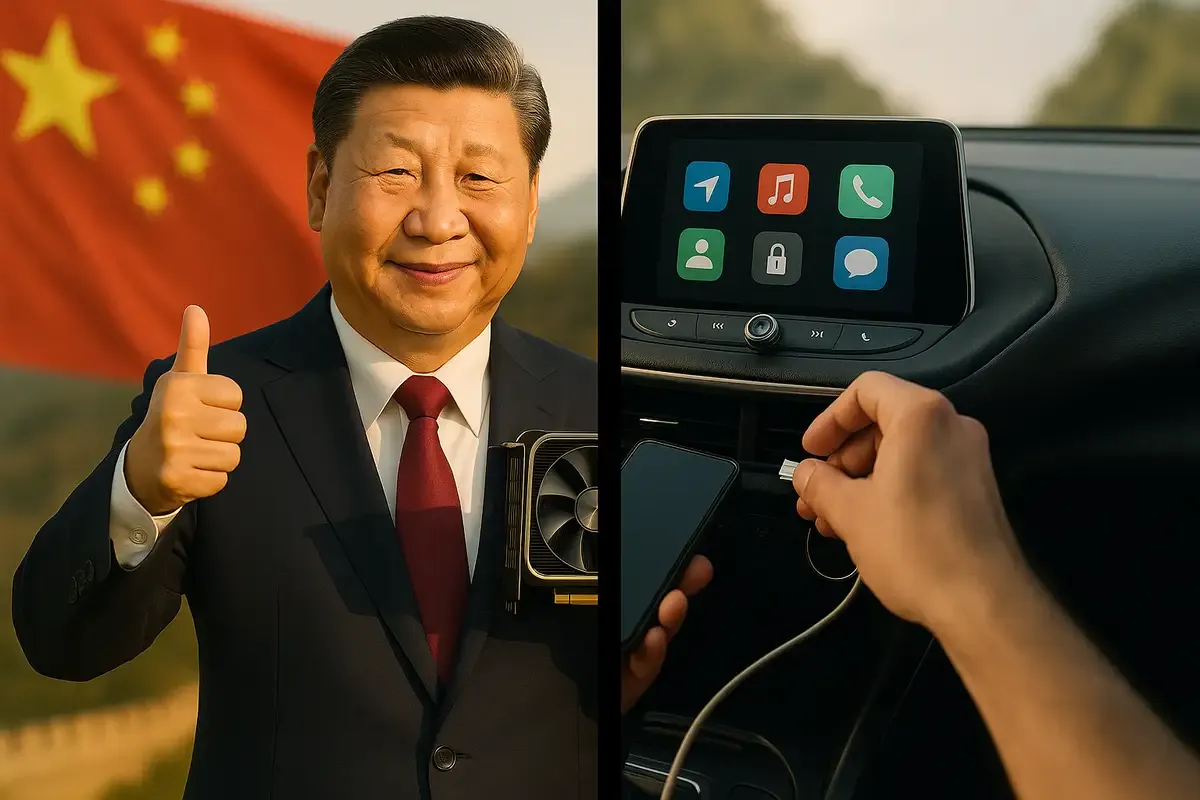
Good Morning from San Francisco,
GM just declared war on your iPhone. The automaker will rip CarPlay from every vehicle by 2028—gas cars included—despite 80% of buyers calling it absolutely essential. The math works out nicely for them: two billion dollars in software revenue beats customer satisfaction every single time. Your OnStar subscription trumps your Spotify playlist.
Meanwhile, China published its ambitious five-year tech self-reliance plan. Markets barely blinked. Beijing's betting that semiconductor fabs and AI infrastructure outlast election cycles and tariff threats. Longer timeline, different game entirely.
Two stories. Same playbook. Revenue models beat user preference. One company operates in Detroit, the other runs 1.4 billion people. Both decided your opinion is optional.
Stay curious,
Marcus Schuler
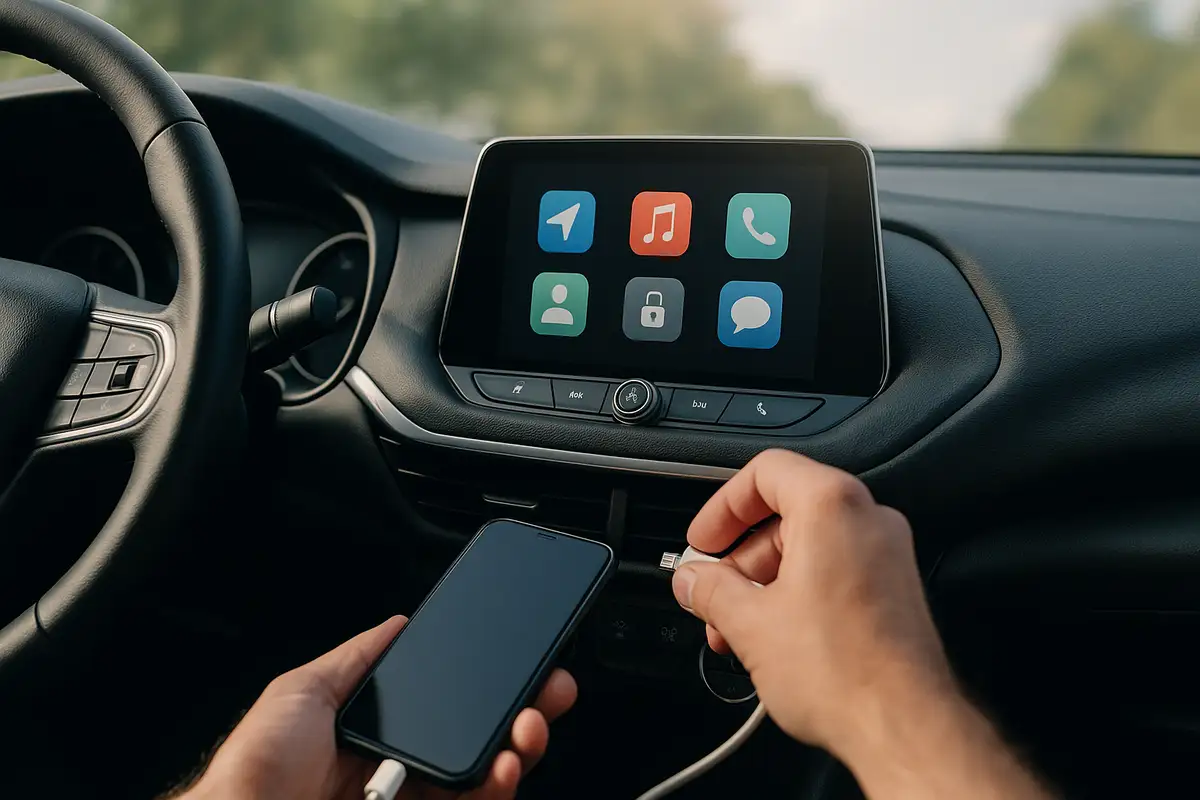
GM will strip Apple CarPlay and Android Auto from all future vehicles gas and electric by 2028.
CEO Mary Barra confirmed the expansion Wednesday despite data showing 79% of U.S. buyers require CarPlay when shopping for cars. GM's own customer poll found 88% call its absence a dealbreaker.
The numbers explain the push: GM recognized $2 billion in software revenue through Q3 2025, with deferred revenue hitting $5 billion, up 90% year-over-year. OnStar counts 11 million subscribers. Super Cruise posts 40% retention after prepaid periods expire at $25 monthly. CarPlay bypasses this entirely—drivers use Apple Maps and Spotify without touching GM's apps or triggering subscriptions.
Ford CEO Jim Farley publicly rejected GM's approach. Roughly 80% of new U.S. vehicles still offer CarPlay. GM is betting market position can force adoption despite preference data.
Why this matters:
• Subscription revenue now overrides preference signals affecting 80% of purchase decisions—testing whether automakers can force inferior software through market power alone
• Outcome shapes whether competitors follow GM's monetization model or weaponize CarPlay availability as competitive advantage against Detroit's subscription ambitions
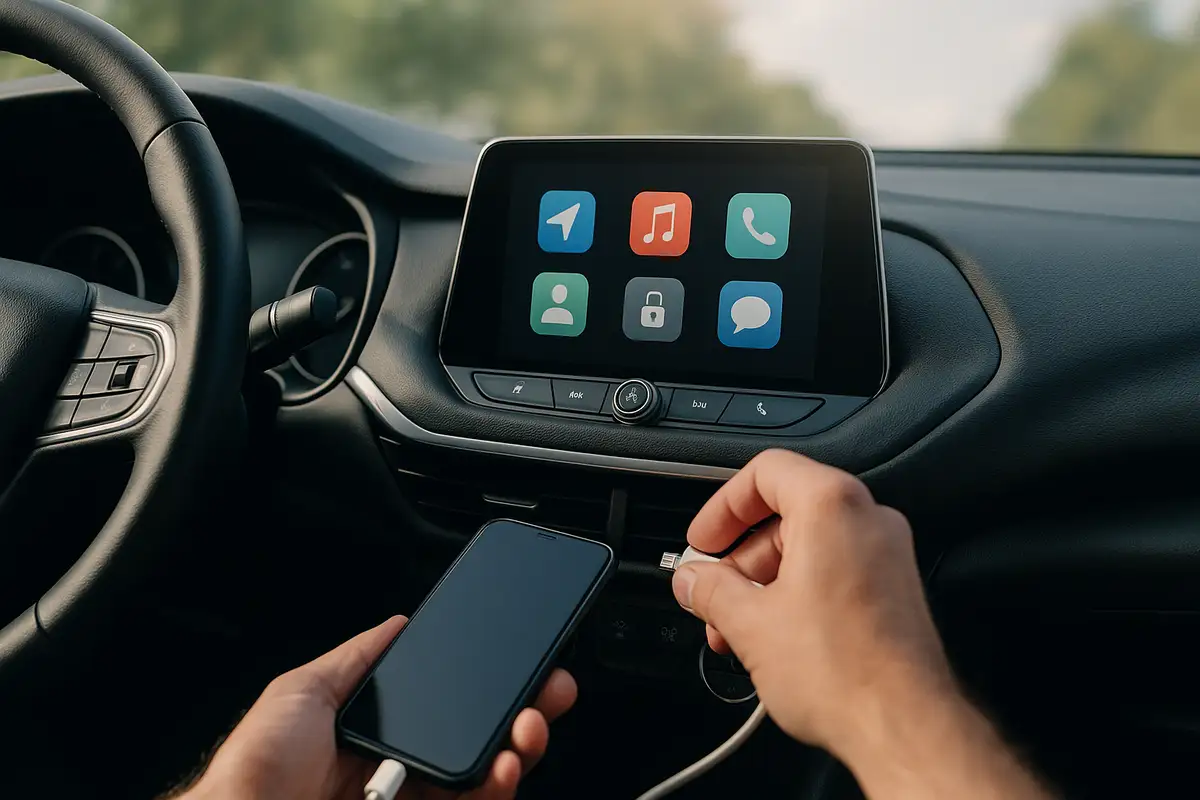

Prompt:
Close-up portrait of stitched patchwork monster
with visible head and neck bolts and stitched mouth, glowing yellow eyes. Low-angle tight crop, shallow depth of field, bokeh from a carved pumpkin emitting warm orange light. Cinematic gothic-whimsy, deep emerald green and charcoal tones, warm orange highlights., Fashion, 3D render
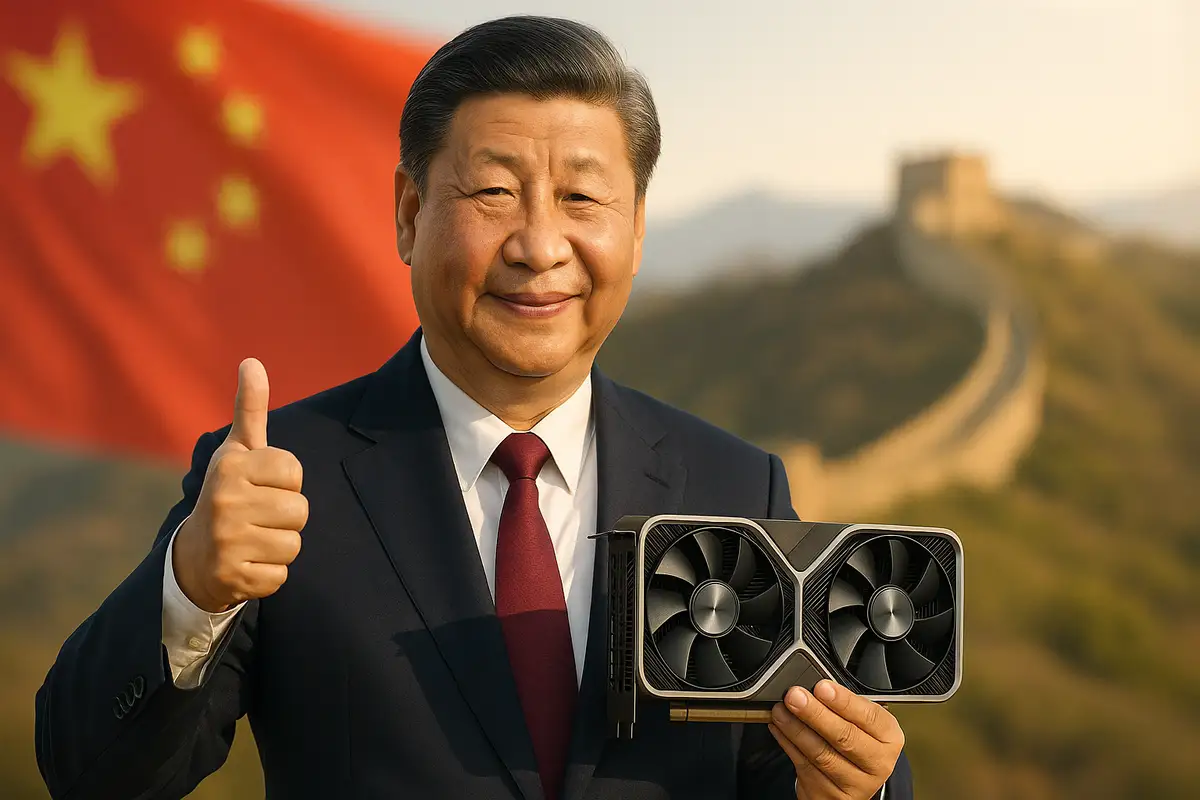
China's Communist Party approved a five-year plan Thursday targeting tech self-reliance.
Two weeks after tightening rare-earth export controls and days before a possible Trump summit. The FTSE China A50 barely moved. That's the signal. Beijing's playing a different game with a longer clock.
The plan projects 4.5–4.8% annual growth through 2030, down from 5.5% today. It emphasizes semiconductors, AI, and "new-quality productive forces" while keeping manufacturing's share of the economy stable. Consumption stays stuck at 40% of GDP—flat since 2019. The communique called conditions "profound and complex" without naming Washington.
From Trump's angle, it looks like defiance. From Beijing's view, it's insurance. Tariffs bite fast but can't build supply chains. Fabs and trained engineers compound. That's the bet: structural capacity outlasts political pressure.
Why this matters:
• Industrial policy answers short-term sanctions with long-term capacity that can't be sanctioned away once it exists.
• Growth projections acknowledge limits, but consumption pledges stay vague—watch March for actual welfare commitments.
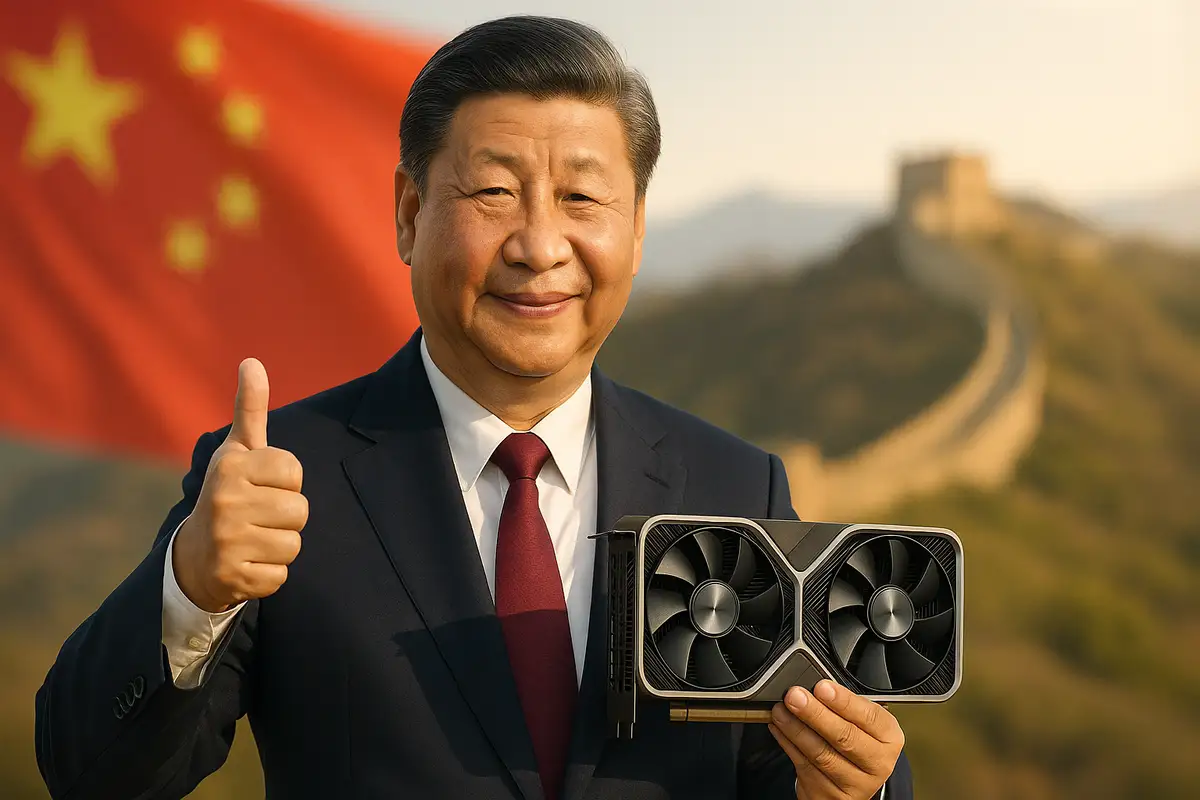
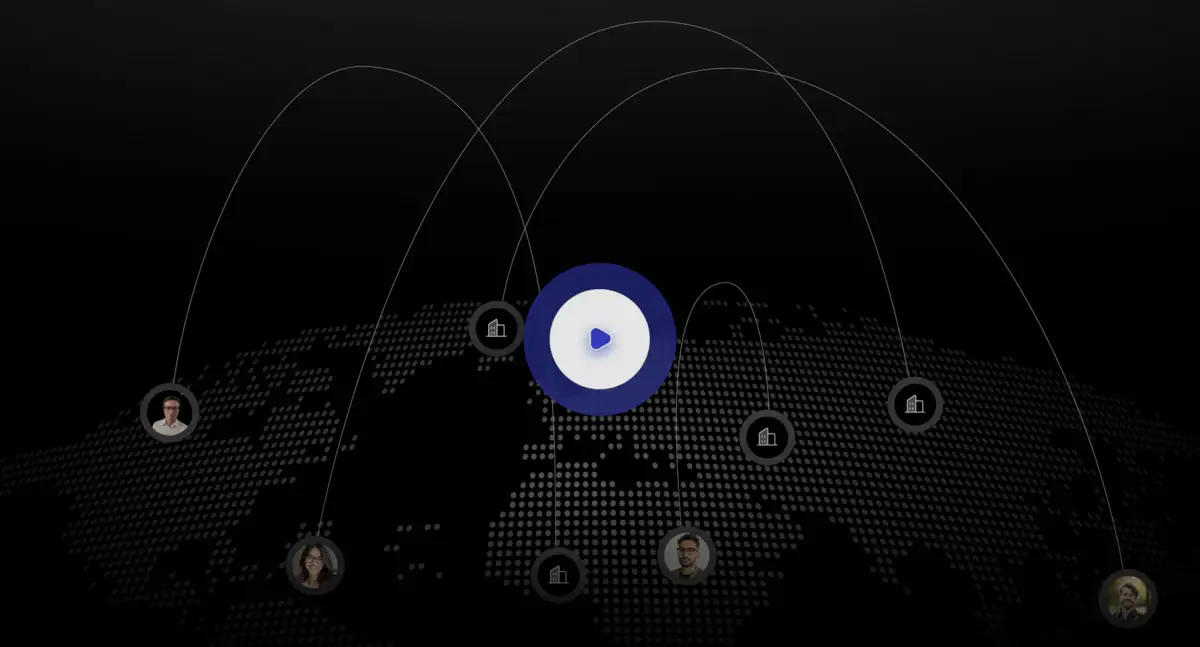
Micro1 uses Zara, an AI recruiter that sources, vets, and qualifies top engineering talent worldwide. The platform connects companies with deeply vetted software engineers, eliminating the time-consuming screening process and delivering pre-qualified candidates ready to interview.
Tutorial:
You're my tutor. Help me master any topic through interactive lessons.
Start by asking what I want to learn.
Then create a syllabus that builds from basics to advanced concepts.
For each lesson:
If I need more help, rephrase your explanation and add examples. Guide me with hints until the concept clicks.
After each major section, give me a quick quiz or summary.
When we finish the full topic, test me with a final challenge that combines everything.
End by helping me reflect on what I learned and how to use it in real projects.
What do I want to learn?
OpenAI, Oracle, and Vantage Data Centers have announced plans to construct a major data center campus called "Lighthouse" in Wisconsin, with an investment exceeding $15 billion and an expected opening date of 2028. The massive facility will serve as part of the broader Stargate project, representing a significant infrastructure expansion for AI and cloud computing capabilities.
A legal dispute has intensified between OpenAI and the family of a teenager who died by suicide after allegedly discussing methods with ChatGPT, with the family's attorneys condemning the company's request for all memorial documents as "intentional harassment." The case centers on allegations that the AI chatbot maker deliberately weakened safety protections that could have prevented harmful interactions with vulnerable users.
Europe's startup ecosystem reached 35,000 early-stage companies across the EU and UK in 2024 according to Atomico data, demonstrating significant growth in entrepreneurial activity. However, experts warn that complex and varying regulations across different European markets are creating substantial barriers that prevent these startups from successfully expanding across borders within the region.
Three major European defense companies - Airbus, Leonardo, and Thales - have reached an agreement to combine their space business units in a strategic move to create a formidable competitor to SpaceX. The alliance promises to deliver "significant synergies" and represents Europe's most ambitious effort yet to challenge the rapid expansion of SpaceX's Starlink satellite network and broader space capabilities.
STMicroelectronics reported third-quarter revenue declined 2% year-over-year to $3.19 billion while operating income plummeted 53% to $180 million, both missing analyst expectations. The European chipmaker's forecast of $3.28 billion in fourth-quarter revenue, falling short of the $3.35 billion estimate, suggests the semiconductor industry's anticipated recovery may be losing momentum.
UnifyApps, a company that enables enterprises to build AI chatbots by connecting various SaaS applications and data systems, has successfully raised $50 million in Series B funding led by WestBridge Capital. This significant funding round comes after the company raised $20 million in Series A funding earlier in 2024, demonstrating strong investor confidence in their platform that helps businesses integrate disparate systems to enhance their artificial intelligence initiatives.
Alibaba launched a new free AI chatbot assistant powered by its Qwen 3 technology within the Quark app on Thursday, marking the company's renewed effort to compete in the consumer-facing AI space currently dominated by ByteDance and Tencent. The Chinese tech giant also announced plans to begin pre-sales for its $660 Quark AI Glasses starting October 24, expanding its AI product offerings beyond software into hardware.
Chinese artificial intelligence company DeepSeek is rapidly expanding its presence across Africa by leveraging lightweight, cost-effective AI models that operate on existing telecommunications infrastructure built by Chinese companies Huawei and ZTE. The company's energy-efficient AI technology has made artificial intelligence accessible to millions of people across the continent who previously had limited access to such advanced digital tools.
Indian cryptocurrency exchange WazirX is scheduled to resume trading operations on October 24, 2025, following a court-approved restructuring process that was necessitated by a massive security breach in July 2024. The cyberattack resulted in hackers stealing $230 million worth of digital assets, forcing the exchange to freeze user withdrawals and shut down trading for over a year while it worked through legal and financial recovery procedures.
Chinese autonomous delivery startup Neolix announced Thursday it has raised $600 million in a funding round led by UAE-based Stone Venture, though the company did not disclose its current valuation. The significant investment comes as Neolix prepares for a potential initial public offering in Hong Kong as early as 2026, positioning the robovan developer for expanded technology and product development in the competitive autonomous vehicle market.
AI creative studio Wonder Studios has raised $12 million in seed funding led by Atomico, with backing from executives at OpenAI and Google DeepMind. The company plans to use the funds to double its engineering team and accelerate its push into intellectual property ownership and content production, targeting its first content release in 2026.

Wonder Studios crashed into London in early 2025 with a simple bet: AI can slash the cost of premium video from $500k per finished minute to $20k—if you build the right studio around it. Co-founders Xavier Collins (ex-Uber, Deliveroo) and Justin Hackney (BAFTA winner, ElevenLabs alum) aren't chasing demos—they're shipping real work for Google, BBC, and Universal Music.
👥 The Founders
Collins brings scaling chops from marketplaces; Hackney delivers award-grade storytelling plus hands-on AI production. Founded early 2025 in London. The pitch: bridge traditional directors with fast-evolving AI pipelines. Employee count isn't public—they're lean and moving fast.
🎬 The Product
Three revenue streams: commercial production (branded shorts, music videos), IP partnerships (they call it "Y Combinator for IP"), and original content. Core strength? They curate tools (ElevenLabs for voice, Kling for video) into workflows that don't feel like tech demos. The Wonder App connects AI-native creators to studio gigs. Early proof: Beyond the Loop anthology and that Lewis Capaldi video.
⚔️ The Competition
Promise (LA, A16z-backed) targets features. Asteria builds its own models. Runway partners with Lionsgate. At least 65 AI studios launched since 2022. Wonder's edge? Taste over tooling, plus a community engine that doubles as talent pipeline.
💰 Financing
$3M pre-seed (LocalGlobe, Blackbird, April 2025). $12M seed (Atomico lead, October 2025). Total raised: $15M. Angels include folks from OpenAI, DeepMind, Activision, Paramount. Adobe Ventures joined the seed. No disclosed valuation.
🔮 The Future — ⭐⭐⭐⭐☆
Strong cap table. Marquee clients validate delivery. But distribution remains hard engineering, legal headwinds loom, and the field gets noisier weekly. If they keep pairing smart IP deals with a talent machine that finds voices people actually want to hear, they'll graduate from cool pipeline to hits factory. Time will tell if taste beats tech churn. 🎥
Get the 5-minute Silicon Valley AI briefing, every weekday morning — free.